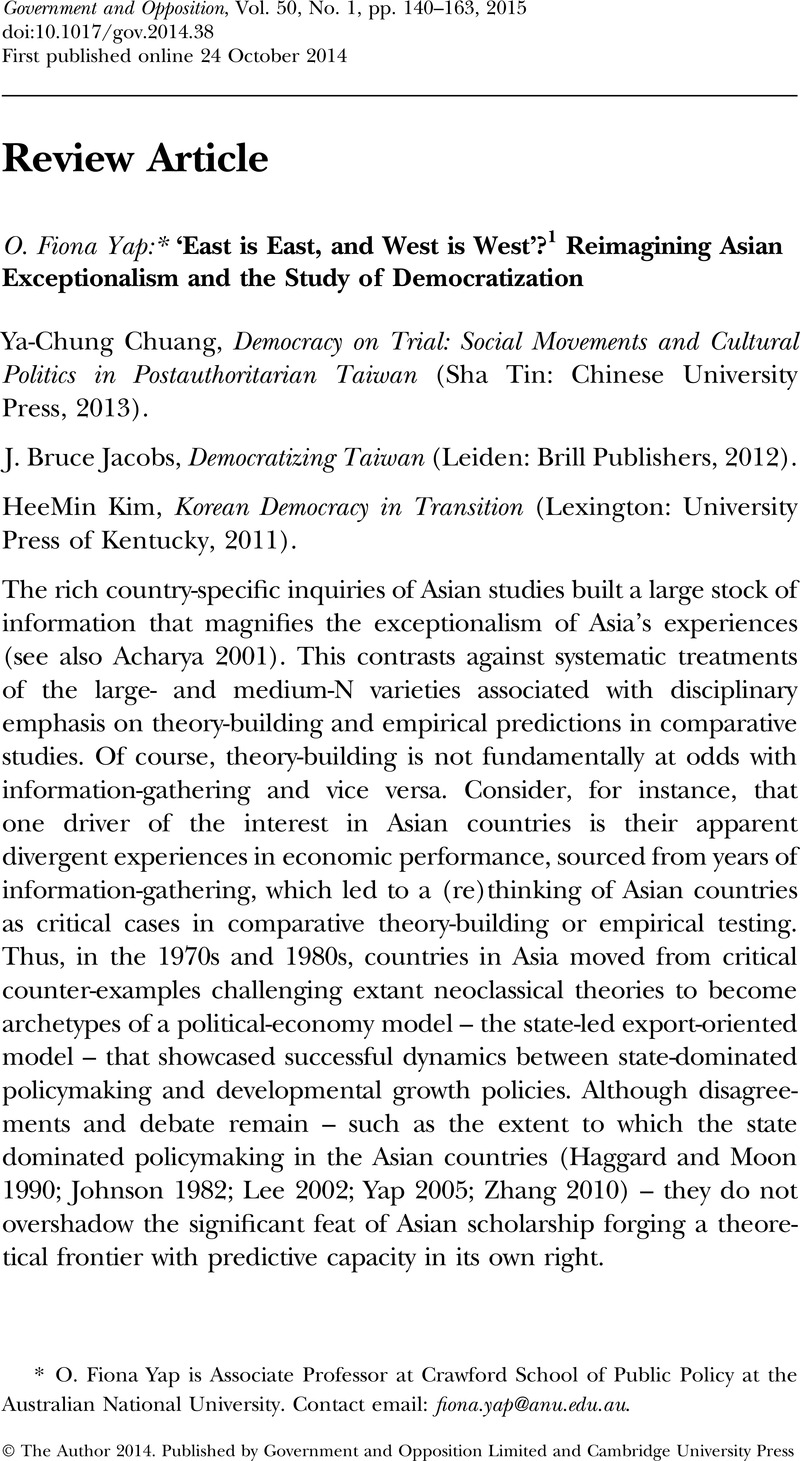Crossref Citations
This article has been cited by the following publications. This list is generated based on data provided by Crossref.
Reilly, Benjamin
2017.
An Elephant’s Graveyard? Democracy and Development in East Asia.
Government and Opposition,
Vol. 52,
Issue. 1,
p.
162.



